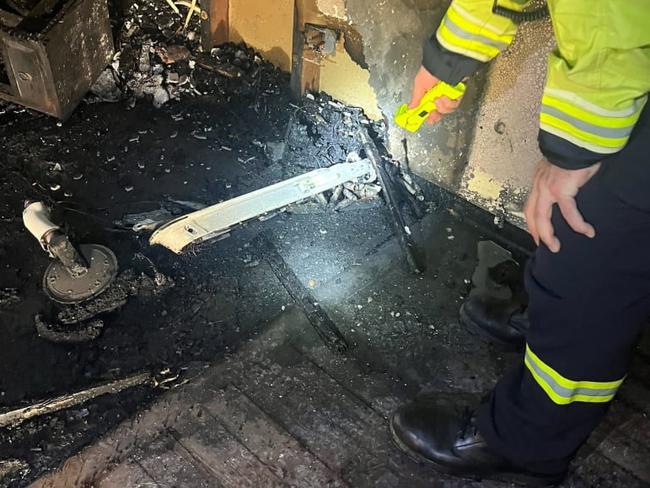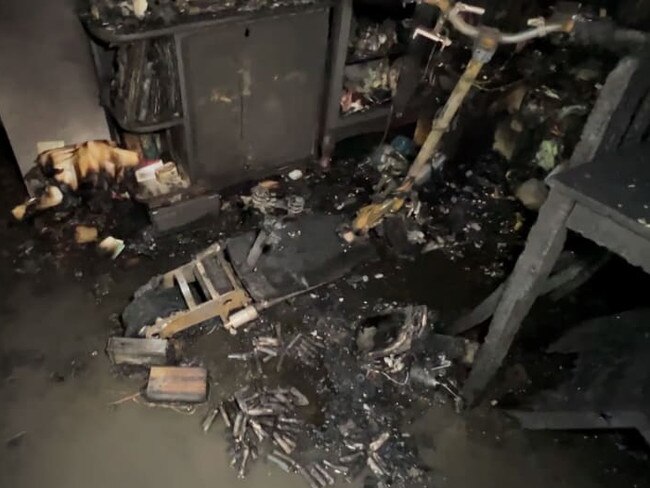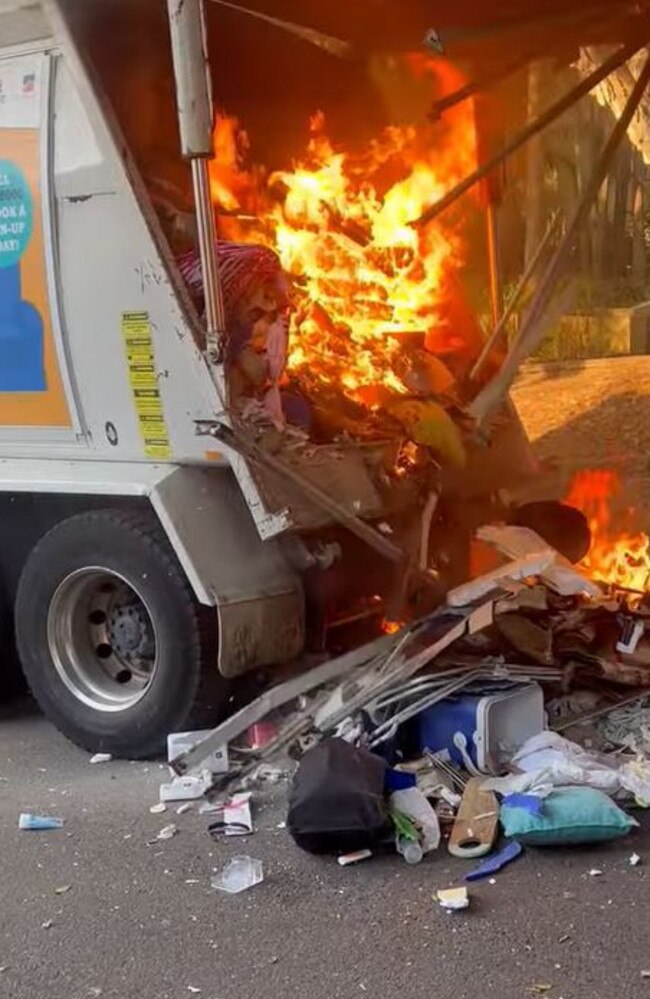Lithium batteries: The ‘explosive’ household items fireys fear will soon kill
You'll find them in e-bikes, e-scooters, electric vehicles, phones and your laptop. As NSW sees huge increases in lithium battery fires, it’s only a matter of time before they take a life.
NSW
Don't miss out on the headlines from NSW. Followed categories will be added to My News.
They are the “explosive” household items just waiting to go off in our homes, a leading firefighter says, and it’s just a matter of time until someone is killed.
Firefighters are warning families across NSW to be on red alert for lithium batteries, which can be found in e-scooters, e-bikes, electric vehicles and laptops, and can be highly explosive.
Fire and Rescue NSW has responded to 114 battery related fires this year so far, with rates increasing from 165 for the entire year in 2022.
Fire and Rescue NSW Acting Deputy Commissioner Field Operations Trent Curtin said lithium batteries pose a huge risk to the public, but many are unaware just how dangerous they are.
“I’m really worried people will die in NSW,” he said.

“In New York particularly we have seen a huge amount of risk. They’ve had a lot of fatalities … we have serious concerns that will happen here.”
As the popularity of e-bikes and e-scooters increases, Fire and Rescue NSW want the public to know overcharged batteries and low quality batteries can lead to an explosion with enough power to burn down homes.
The telltale signs that a lithium battery is about to catch fire are the popping, or crackling noises.
If you hear this, get the device outside as quickly as possible.
However, this can quickly lead to thermal runaway, where the temperature rapidly heats up and a toxic plume of smoke is released.
Once that happens, Fire and Rescue NSW says the battery should not be touched and can only be disposed of by firefighters.


These fires are tough though – their toxic and highly explosive properties mean it can take hours for firefighters to put it out.
On Monday an overheated laptop battery caught fire in a ward at Campbelltown Hospital, luckily the fire was small and able to be doused before it spread.
It was a different story for a man in Merewether last week, who is lucky to be alive after jumping from his window when his e-scooter sparked a fire in his home.
The blaze broke out in the living room while he was sleeping, blocking the exit. This is an all too common occurrence for firefighters, who are often called to lithium battery fires started in garages, entryways and loungerooms which can block the only exit.
While electric vehicles have yet to cause any major disasters in NSW, firefighters are also worried about crashes involving EVs, which can create ferocious fires.

“It requires a copious amount of water to get it to the point where the thermal runaway event stops, and sometimes it takes hours – sometimes it could reignite,” Acting Deputy Commissioner Trent Curtin said.
Another lithium battery headache for firefighters is incorrect disposal, with a spate of recent garbage truck fires blamed on the batteries.
Just this week a garbage truck in Bondi was engulfed in flames from a lithium battery.
The second hand market is also a great concern for firefighters with batteries of unknown origin, or damaged or low quality batteries being sold for cheap.
Last year Fire and Rescue NSW busted a seller flogging flood damaged e-scooters, which had been linked to a house fire in the Northern Beaches.
“These fires are difficult to extinguish and can cause significant damage to a home. We would encourage homeowners to take care when charging devices, follow charging instructions and dispose of used battery products safely,” emergency services minister Jihad Dib said.
“If you are unsure about using batteries our firefighters are part of the local community and we would encourage you to ask them for advice.”


